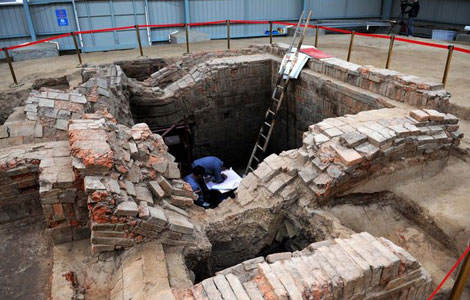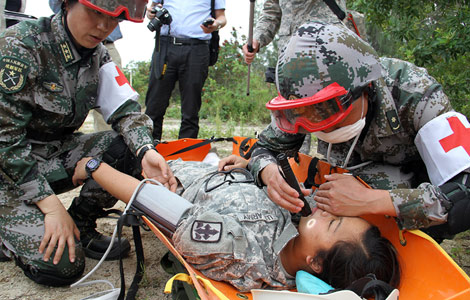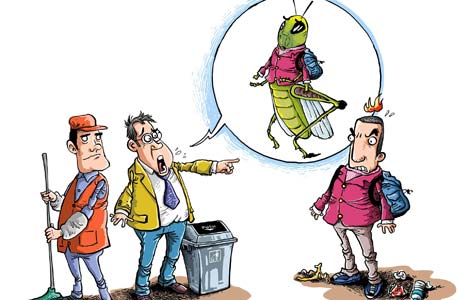China seeks climate aid timetable
Updated: 2013-11-15 23:40
By Fu Jing in Warsaw, Poland (China Daily)
|
||||||||
Nation unclear when developed economies will provide funds
Developed economies should devise a tangible timetable and roadmap to fulfill promises to provide aid to poor countries, said China's top climate negotiator Su Wei.
It is unclear whether developed economies have implemented their plans of granting $10 billion to developing economies annually during 2010-12. It is also unknown how they plan to stick to their pledged $100 billion from 2013 to 2020.
Su said he was concerned about the reluctance to provide developing economies the financial means to tackle climate threats and the lowered carbon emissions goals proposed by developed economies as the annual United Nations talks in Warsaw moved into the second week.
"I don't know how to describe the meetings and negotiations here in Warsaw. ... I am not sure whether we are able to make much progress," Su said at a news briefing on Thursday.
"What I can say is that we are in the process. I hope by the end of next week, we can make concrete and tangible progress both in enhancing mitigation and adaptations."
Next week, environmental or climate ministers from around the world will gather in Warsaw in efforts to encourage global action on environmental issues.
Su said China and other developing economies came to Warsaw hoping progress would be made to enhance efforts to address the growing global climate threat.
In an effort to turn the hope to a reality, Su stressed that recent natural disasters, such as a flux of typhoons in Asia, have mainly resulted from carbon emissions from industrial countries in the previous two hundreds years.
Su added that he should "remain silent for a while" over Japan's reduced efforts in tackling carbon emissions and that the European Union's targets of reducing emissions is not ambitious at all.
Su said a consensus was reached on the adaptation and mitigation of climate threats in talks in Durban, South Africa, last year, but poor nations are still waiting for financial aid from developed countries.
"Our core concern of the implementations in Warsaw is finance and we hope we can make progress on that," said Su. "It's the key to successful conclusions of post-2020 climate talks.
In previous UN climate talks, developed countries promised to deliver $10 billion in financial support annually from 2010 to 2012, and a total of $100 billion from 2013-20.
"We are almost at the end of 2013, so it is urgent that we have actual provisions of resources confirmed to achieve the financial goal set by the developed countries by 2020," said Su.
Su suggested that the developed countries could start by allocating $30 billion by 2015.
Su said China has committed to cut its energy intensity by 40-45 percent by 2015 from 2005 base.
"China is very committed to deliver promises that were agreed to in previous UN climate change negotiations," said Su.
Though China is one of the biggest emitters of carbon, Su said: "We are below or around the world's average in terms of emissions per capita or historical accumulation. In spite of this, we made great efforts in transforming our development patterns and decreasing carbon intensity."
Most Viewed
Editor's Picks

|

|

|

|

|

|
Today's Top News
China's FTZs promise flourishing growth
Reform tackles overcapacity
1 killed, 3 wounded at house party shooting in Houston
Obama: US poised to control own energy future
Wait a minute, baby
China ready to send rescue teams to Philippines
Chinese, US practice disaster relief
Map unveiled for profound reform
US Weekly

|

|














